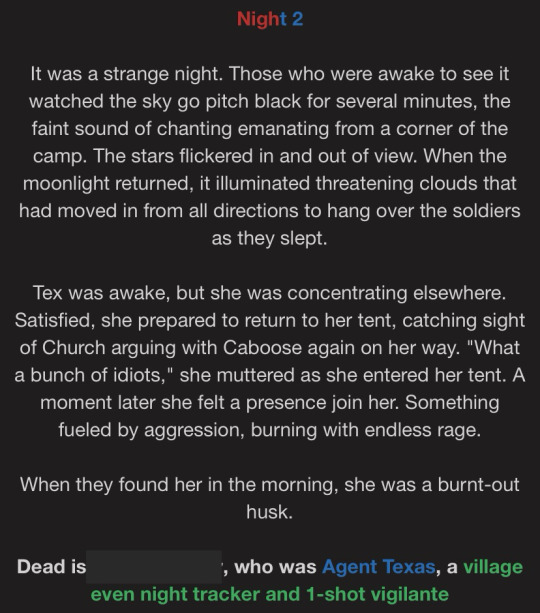#what is head and modifier in syntax
Note
I can't seem to get a hang on the High Valyrian syntax. Do you have any recommendations for learning? Or which language its close to?
High Valyrian is a head-final language, so a lot of it will be backwards for English speakers. The one thing that's the same is adjective placement (the adjectives comes before the noun) and possession, if you think of the genitive -o forms as -'s forms (so don't think of valo kepa as "the father of the man" but as "the man's father"). With everything else, it will help to reframe it. So it's not "The dragon I saw is large", it's "The 'I saw [it]' dragon large is". It really helps if you think of those relative clauses as extended, wordy adjectives.
What might help is studying another verb-final language. The most obvious that jump to mind are Turkish and Japanese. It can take a while to get the hang of the syntax of those languages, but if you do, I think High Valyrian will seem a lot simpler, because the rest of it is morphologically more familiar.
The one thing that's really difficult to wrap your head around is the relative adjective. If it were a pronoun, it'd be a lot simpler, but since it's an adjective, it's very important to remember that its case and gender will match the things it modifies, and it just means "that" or "who" or "which". In English, it gets its case marking from the embedded verb (so it's "The man whom I saw", not "The man who I saw"). In Valyrian it's not even a noun, so it just kind of meekly agrees with "the man" in that sentence and whatever gender or case it may have.
I hope that helps...? I'm at the end of the explanation and I honestly have no idea if it will. >.<
#conlang#language#game of thrones#hbo#valyrian#high valyrian#grammar#high valyrian grammar#house of the dragon#hotd#got#turkish#japanese
20 notes
·
View notes
Text
Possible Signing in Good Omens 2 - Part 1
Version 2 (bc ver 1 crashes tumblr)
ok i (and my ocd) have done some digging. apologies for the fugliest super-slow overbright gifs ever but we need to see movement not just their precious faces

this gesture is very similar to a sign for "stop," palms face the floor and move down. i think it's significant that Az looks towards the window

head tilt/brow raise - same manual gesture but notice his eyebrows raising as his head tilts forward
this is called a "non-manual feature" which can be a lot of things but one thing it does is communicate whether a set of signs is a question or a statement. basic BSL syntax is Concept - Comment - Subject. so if someone signs: car - can drive - i that means "I can drive the car" but if they add a head tilt-brow raise it means "Can I drive the car?" If the person were to shakes their head no while making the sign for drive it means they can't drive the car. non-manual features modify or clarify

i don't know if Az closing his right hand while leaving his left hand flat is a language sign but the shapes are consistent to other signs I've seen. This isn't a sign I know though so ?????
if Michael Sheen is right handed, he'd do the complexy bits with his right hand like this. and I think he is right-handed. he writes, throws halos, uses keys, and holds candelabrae right-handed. there's nothing about him being left-handed or an ambidexter on his wikipedia or IMDB page, so prob right-handed. (1) or they horizontally flipped the film as i've seen some old shows do. the only reason i can imagine them flipping the film though is if the only Bentleys they could find were LHD (if any were even made) and they had to flip it to get it to look british. seems unlikely
speculation: the stop/slow/taking my time gesture plus this one feels like a protocol negotiation to establish analog flow control, like SYN-ACK in TCP/IP
conjecture: "wait, i'm signing"
(1) llangyfarchiadau mawr i fy i cyber-stalked a man's hands today very normal so. sane

two gestures here from Crowley. the hand that looks like it throws something makes is making a gesture similar to a two-handed sign that means "magic". the one where it looks like he's clearing things away isn't a sign i recognise but it feels like a rejection.
speculation: "miracles - no/reject"

Az's left-hand signs "downstairs"
conjecture: look at the relief on aziraphale. his whole self in at least 7 dimensions is going "god ily you understand every word i never said"

possibly noise, but where his thumbs cross, there's a sign for "angel" similar to that except the palms face in. getting access to a few two-handed signs drastically increases the vocabulary available. some signs can be done one-handed but i saw a person comparing it to talking with your mouth full
not to muddy the waters (but i'm gonna), from another non-verbal communications perspective this is a VERY classic version of Michael Chekhov's(2) archetypal Push gesture. and come to think of it he does look like he's Balancing
(2) Michael Chekhov was playwright Anton Chekhov's nephew and a student in Stanislavski's acting school. Stanislavski is famous for the The Method people are talking about when they say someone's a Method actor. Michael Chekhov used what he learned from Stanislavski and created his own method that uses 11 archetypal gestures to get into the heartspace of a scene rather than internally re-living as vividly as possible a similar emotional experience to the scene. I have no idea how Michael Sheen approaches acting, but I'm including the movement based stuff I was taught bec it caaan look like sign-language but isn't

left-hand signs: you
guess at right-hand: understand? upstairs? some other sign very low and out of frame so we don't see it?

left-hand: me
this is kind of conjecture, but I think he's thumb pointing back at himself

right hand OTS: another sign that looks like the sign for magic.
notice how his fingers flick open. it's a very definite movement. and so far the movement that looks the most like a sign to me. there's a crisp precision to it.
i want to add here that almost everything i'm looking at looks muddy to me. i had to slow it down to see if i was even seeing any of what i thought i was. if you watch people perform BSL song covers or teachers of the language, the signs are crisp, clear, precise. even when they're rapid they're deft. if Az and Crowley are signing, they're being extremely careful to look like they aren't. except like with this movement where it's quite sure. (of course people just conversationally gesturing move with a certainty too so, again, I might be seeing something i wanna see)
34 notes
·
View notes
Note
Apologies for gushing but your last fic twenty-two was just so beautiful! I'm wondering how you come up with so many good details in all your fics? I'm working on getting better at imagery and would love hearing more about your process, you just have such way with descriptions!
first off, thank you so so much anon! this made my whole week!
but oof, this one is tough since i'm definitely not an authority on descriptive writing (or any sort of writing, really), and i'm not particularly introspective about the process. and twenty-two more or less fell out of my head in one piece, which doesn't happen very often for me, so i'm working a little backwards here.
so at the risk of sounding incredibly preachy, i've taken a stab at articulating how i tend to think when creating scenes. maybe some of this will be helpful?
for me as a reader, details that tend to stick out are both extremely specific and concise. the specific part comes a little easier for me when writing - picking out little actions and details from everyday life that i don't tend to read about very often - but the language precision takes more work. if a detail requires too many descriptors to convey the full picture, i'll usually revisit and search for more specific words or axe it completely.
i think it's really important to trust our abilities to describe things uniquely! which sometimes means swinging for the fences and missing entirely with an analogy that doesn't work, but i find that so much more interesting than relying on clichés.
i'll add to the choir of advocates for killing your darlings. deep down, you know if something doesn't fit. i keep a "dump now use later" doc as a personal pacifier, because it feels easier to delete an *incredibly clever* bit of wording if i think i can recycle it someday (spoiler: i won't).
i try not to think about this too hard, but syntax is a really helpful tool for flow and for characterizing a narrative voice (she says in full awareness that hermione's inner monologue in her fics sounds a lot like ginny's which sounds a lot like harry's... 😬).
i like to let descriptive verbs do the talking over adverbs an adjectives. again this is based on my preferences as a reader; i find actions to be much more immersive when they can stand alone without modifiers.
a wonderful beta changed my life by ruthlessly trimming the fat from one of my works. this is a little different than cutting out entire ideas that don't fit, more like removing filler from your sentences that dilute the point. i'm not necessarily advocating for a minimalist tone (lord knows we're far from that), but this kind of editing really helps the details pop.
a n y w a y , all of that feels very boiled down to a science, which might go against the point? i think it can be good to consider these things while editing, but i guess the biggest piece of 'advice' i would offer is to try and let your voice and your plot/ideas speak before any of the language mechanics. i usually feel most stuck when i'm too focused on phrasing something that doesn't serve the bigger picture, and zooming out to "what is this scene even doing here" often helps me realize that (ahoy, we've circled back to killing our darlings).
maybe some of that made sense, and if not i apologize, but thank you so much again anon for this humongous bit of flattery and for letting me ramble!
🌱
#sweated my whole way through typing this out#not much to see here kindly keep scrolling#anon ask#answered#writing thoughts#the craft
9 notes
·
View notes
Text
Tips for Writing Sentences in a Foreign Language - for Beginners
Having studied 3 foreign languages at varying degrees of intensity and success - Japanese (I flatter myself to be fluent), Spanish (I can ask some simple questions and possibly crudely insult someone), French (I can say a few well-sounding phrases and then smile & nod when you respond). When beginning studies in languages, one of the most challenging things is to jump from the set beginner phrases from the textbook into creating your own sentences (gasp).
From my own language studies, plus experience TA'ing first year Japanese, I have a few tips for beginners on taking that leap into creating your own sentences. These will probably lean heavily on Japanese because that is the language I have the most experience with, but they are applicable to other languages too.

1. Just start making sentences!
It sounds simple, but it's the best way to start. Writer's block? Write about what you are doing, what you want to do, or write an introduction. Worried about speaking? Talk to yourself about what you are doing, what you want to do, or introduce yourself to yourself. You don't have to write or say anything world-shaking, but getting started is the first step. You can start by modeling sentences you've already seen. If you have an example textbook sentence, try modifying it to make your own similar sentence.
PS. Your sentences don't have to be perfect either. If you notice a mistake later, just go back and correct yourself!
2. Don't try to translate the phrase from your native language EXACTLY into your target language.
Languages don't always translate exactly, but also, sometimes your skill isn't advanced enough to say the same things you can say in your native language. If you don't yet know the appropriate grammar, vocabulary, or syntax of what you want to say, not being able to say exactly what you want can be frustrating and lead you to feel defeated (personal experience here). Instead, think of how to put the idea you have into a sentence using the knowledge you DO have.
If you have just started learning a language, it might be too much to directly translate "Entities should not be multiplied unnecessarily" (thanks, Ockham's Razor). Instead, why not try to translate "Simple is best"?
3. Avoid heading straight for the dictionary if possible when there is a word you don't know in your target language.
If you don't have the vocabulary word you need in a sentence, you might be tempted to go to the dictionary and look it up and throw it into your sentence. Whilst TA'ing first-year Japanese, this led to me puzzling and scratching my head over what the student was trying to say in their homework (hey, it's not my first language either!).
While using the dictionary to learn new vocabulary is obviously a must, when you are just starting out with sentence building it can also be a roadblock. When conjugating verbs is new to you, try using the verbs you do know to explain your idea. If you don't know a vocabulary word, selecting the right one for your context from a list of words with similar definitions can be difficult. If you don't quite know how to explain what you want to say, try rephrasing it until you can compose a less complicated sentence. Or break it into several sentences - you can work on complicated sentences when you're more comfortable with simpler ones!
Another bonus is that learning to explain what you want to say in your target language when you don't know the vocabulary is a helpful lifelong skill (that I still use today in Japanese). It can be frustrating to not be able to say exactly what you want to say in your target language at first, but if you just keep practicing you will get there.
4. Practice making sentences on the fly.
Writing allows you more time to think out the sentence, go back and make changes, and work things out more slowly. Speaking, on the other hand, is more challenging because you have to make your mouth form the words you are thinking, and do your best to make the sentence make sense to your listener. While writing sentences helps me to remember how to write hiragana/katakana/kanji and reinforces grammar (I learn best by writing it out!), speaking out loud helps your brain and your mouth learn to work together in your target language.
Don't have anyone to talk to? That's ok! Talk to yourself. Talk to your imaginary friends. Talk to your pet or your houseplant or your favorite figurine or stuffed animal. Just practice putting sentences together out loud, in real time. I promise you will notice improvement if you practice daily!
5. Don't be afraid of making mistakes!
But even if you do just throw in the dictionary word and your professor/study buddy/language exchange partner has to ask you what you were trying to say, that's ok! Making mistakes is ok! That's how you learn. Don't be afraid to be wrong, to be mocked and ridiculed.. ok, you most likely won't be mocked and ridiculed. (If you are, please find new language friends.)
Language learning is about making mistakes. Even now, after YEARS of studying and speaking and even doing interpretation/translation... I make mistakes (gasp). And it's ok. Ok, sometimes I think about the mistakes I have made in conversation in the middle of the night, but I'm working on that too. One day, you'll look back, and realize that agonizing over particles and which kanji to use and whether or not you would sound dumb when you were speaking to a native speaker is not the part you remember. You will remember when you could barely write your name in katakana, and realize that suddenly you can talk about your favorite hobby in exacting detail.
6. Don't practice in a vacuum.
Practicing sentences, written or spoken, on your own is fine! It's a great way to learn and improve your language skills. But I would recommend not spending all your time studying and practicing in a vacuum. There are lots of online ways to get your writing or speaking corrected (paid or not), and I would recommend taking advantage of them. I have gotten into the habit of using certain words that are too informal or that are not correct in the context I wanted to use them in, and it took a native speaker to point them out since I had become so used to using them (and so sure that I was right). So make sure to practice your language outside of your own head, and you will be able to improve even more.
So, what next?
Get out there and start making sentences! Write them, say them, and just practice. Don't stress about being perfect or making sentences that will change the course of history... instead, just start making sentences!
頑張ってね!
#日本語#japanese#japanese langblr#japanese language#langblr#studyblr#writing sentences in japanese#writing sentences in a foreign language#japanese for beginners#tokidokitokyo
312 notes
·
View notes
Text
the forum werewolf game ever. of all time: night two
Start reading here!
Donut (ability: can seer someone's armour colour) decides to seer himself, because rules like "you can only seer on odd nights" are made to be broken Whimsically:

Tex tracks Lopez (sees who he interacts with).
Lopez applies the robot speech modifier (a post-restriction that makes someone post in robot syntax and make every fourth post in Spanish, the item Sarge made and bequeathed to Lopez before dying) to Doc.
Doc protects Caboose.
O'Malley kills Tex.
O'Malley also redirects Grif to Sheila (would make Grif act on Sheila instead of whoever he was targeting, if he was trying to act on someone).
meanwhile, Church, on public thread:

Church, in role PM with mods, about twenty seconds later:




[so affectionate that my heart might explode] what's wrong with her
Caboose's action submission (remember, his role is that he can make up any action, subject to mod approval, and it has a very low chance of working. Fun!!): "Skilled in the arts of sorcery and witchcraft, [Caboose] sneaks into [Church's player]'s room to find her sleeping. He whispers in her ear “Tick Tick Tick Boom”. Petrified in terror, [Church] is unable to move.
[Caboose] sets the room for the dark arts. A pentagram in salt. Black candles at the points of the star. He lights the candles and places [Church]'s body in the center of the star.
“A SOUL FOR A SOUL!” he proclaims. Incoherent chanting follows as the light from the candles grows ever brighter.
“Where once there was darkness let there be light!” The candles go out at once.
The room is dark. The body left on the floor, too dark to see.
If [Church] was a wolf, she’s gone. Dead. A soul for a soul. One of darkness for one of purity. In her place is village [Sarge]. Back from the dead.
If [Church] is village, the spell was wasted. She’s passed out, unaware of the nights events but destined to wake up thinking she had a bad dream but not knowing what of."
initially, Caboose had intended to try to make Sheila a bomb (explodes and kills someone if they try to kill her). Then his and Church's insanity happened and all planning went out the window.
you may notice that this action submission is a whole short story when typically they are about 3 words





O'Malley's night results: "N2: O'Malley killed Tex and redirected Grif to Sheila"
Doc's night results: "N2: You stood by [Caboose's player] all night, in case he needed medical attention. Someone attached a busted speech unit to your suit. For this day cycle, you must post in robot syntax, and every fourth post must be entirely in Spanish."
Tex's night results: "N2: You track [lopez's player], and see him interact with [Doc's player] On your way home, you hear a familiar voice in your head. "Did you really think you could get rid of me?" You find yourself laughing uncontrollably. In the next moment, you are dead."
Caboose's night results: "N2: You performed your dark magic. In the morning, [Church] was still alive, and [Sarge] was still dead."
please note how we hint that the action succeeded (WE ROLLED IT. THE ODDS WERE VERY MUCH NOT IN HIS FAVOUR), which implies that if Church were a wolf, he would have died and Sarge been resurrected.
Caboose has, effectively, gotten firm mod confirmation that Church is village.
Church's night results: N2: You awaken drenched in sweat, the remnants of a nightmare fading from your mind. You try to catch the threads of memory but they slip away into the darkness. You don't remember falling asleep, you don't know how you ended up on the floor. As the panic starts to dissipate, a whisper echoes in your ear... "Tick...tick...tick...BOOM."

Next: day 3
4 notes
·
View notes
Text
How to Use ChatGPT for Python and javascript coding

Coding has become an essential talent in a variety of sectors. Whether you’re a new programmer or want to automate processes, ChatGPT can help you write code. This beginner’s guide will coach you through the steps of successfully using ChatGPT for coding activities.
What is Java?
Java is a general-purpose language used for web development, Android, large data, and complicated applications. Thanks to its platform independence, which wasn’t typical in the 90s, businesses like Microsoft have chosen it significantly.
What is Phyton?
Python, a flexible programming language introduced in 1993, is popular in data science, and web development due to its code readability and simplicity. Big businesses like Google use Python.
What is ChatGPT coding?
ChatGPT coding leverages Chat GPT to help you write code. This may include duties such as code creation, completion, and optimisation.
How to Produce Code Employing ChatGPT
To write code using ChatGPT, select a programming language (Python, Java, etc.) and then describe the code you want to write. It should be expressed in normal language and provide the necessary functionality of the code snippet.
Generate Python Code
ChatGPT excels at creating Python code. You can provide it with a problem statement or explain the functionality you need, and it will generate Python code snippets to perform the work.
Why Should You Use ChatGPT to Write Code?
1. Efficiency: ChatGPT follows your guidance and generates code efficiently and precisely. This may significantly speed up the coding process, especially for common or ongoing processes.
2. Learning Aid: ChatGPT can help novices learn. It may help you understand coding concepts and syntax by providing code examples in simple language.
3. Time Savings: ChatGPT can automate a variety of coding activities, freeing you to concentrate on higher-level problem solving and creative parts of your project.
4. Multilingual Support: ChatGPT supports many programming languages, making it useful for developers with different language preferences and project requirements.
5. Idea Generation: If you’re stuck on a coding challenge or need guidance, ChatGPT can provide answers and code snippets to help you get started on your project.
4 Python Code Examples of ChatGPT Usage
Example 1: Requesting Complex Algorithms to be Written via ChatGPT
Python programmers may create complicated algorithms quickly and effectively with ChatGPT. It may be completed quickly by requesting ChatGPT to create a specific algorithm. The longest similar subsequence of two strings, for instance, may be found using the Longest Common Subsequence (LCS) method. This approach is widely used in text processing for similarity detection, edit distance measurement, and diff tool implementation, as well as in bioinformatics for comparing DNA, RNA, or protein sequences. The code may be modified to suit certain requirements by copying it to a Python project.
Example 2: Requesting Code Writing for Web Scraping via ChatGPT
ChatGPT shortens the time needed for web scraping, making it easier. You can employ the BeautifulSoup library to gain access to all headings from a webpage. Just modify the URL of the scraping website to use this code. For more effective and efficient scraping, ChatGPT may also be configured to scrape additional content, like webpage headers.
Example 3: Requesting Data Analysis Python Script Writing via ChatGPT
Additionally, ChatGPT may be used to build code for data analytic activities. We utilized ChatGPT to import, filter, and calculate the mean from a dataset in the Python program that follows.
Requesting Python Script Writing for Data Analysis from ChatGPT
After the code is developed, copy it into a Python project and modify it to suit your requirements.
Additionally, you can utilize ChatGPT to develop the most sophisticated machine learning models—like Decision Trees—and incorporate them into your Python code.
Example 4: Requesting that ChatGPT Build Web-Based Applications Using Flask
Python-based web application development is made possible by ChatGPT; an example of a simple program that returns “Hello, World!” is provided. This example is appropriate for those just starting to work with Flask or learning web programming. It demonstrates how to define a path and the operation that goes with it. These may be improved upon to build intricate web apps that include a variety of routes and features.
Conclusion
ChatGPT may be a great resource for newcomers who are learning to write code effectively. By following the standards and best practices given in this tutorial, you may use ChatGPT to improve your coding abilities as you accomplish your programming objectives.
#chatgpt#technology#generative ai#artificial intelligence#python#javaprogramming#ai#javascript#programming
3 notes
·
View notes
Text
head scrambled full of thoughts about korean tenses and wishing i paid more attention in my pragmatics class
this was stream of consciousness and became longer than i expected so ill put it under a read more cuz not everyone cares about korean lol~
ik im a linguistics major but these are not well-researched intellectual sounding thoughts so forgive me if im unclear or just straight up wrong lol but- i feel like there is something morphologically and semantically significant about the verb endings in korean that include -ㄹ/을 vs the ones that keep the stem vs the ones that use -어/아/해 vs the ones that use -야 but im only smart enough to notice it and not smart enough to really understand it, and too lazy to fully investigate it lmao
but like it makes sense to me that 거예요, 게요, 까요, 래요, etc all use the ㄹ. 할 거예요, 할 게요, 할까요.. like semantically, that makes sense to me somehow. maybe im projecting patterns where there arent any but they all seem similar in being like,, i dont know conjectural? subjunctive? i actually dont know how id categorize them. but kinda like the way that 'ㄹ 거예요' is more accurately a 'probability' form than a 'future' form, thats how i view all of these tbh. they all are used for kinda abstract concepts. do you want to, do you think, will you do this- those types of sentiments. it makes sense that they go together to me. are those endings not compatible with past tense, is that what im picking up on maybe? maybe the ㄹ is just related to the 를 object marker and im overthinking that too. idk. sometimes i think thats it but then we just learned future non modifiers and those ALSO use ㄹ -- 먹을 음식. idk IDK
and then what else is there, you use 어/아/해 for 주다, 드리다, a lot of compound verbs in general. that also just makes sense. and the 어서/아서 makes sense too (but now that i think of it do both the sequential and causal uses of that not include tense? i know sequential doesnt but is the rule different if its causal? i forget). only in the final main verb tense gets marked, like 주다. and the 'helper' verbs i guess are tenseless.
you do mark tense in things like -지만, -겠-, -기, -네, -지 though. which is weird. i dont see the similarities in those as much so maybe thats just,, random-ish lol. but those endings do get added to the main verb of a clause and the main verb needs to have a tense i guess, is that the rule, omg did i figure it out lmao?? omg and i forgot about 면 and 면서 but i am NOT confident in that yet lol
해 줘 - you wouldnt mark tense in 하다 because its only a helper, the crucial part is 줘 which would take on a tense
일어나서 학교에 갔어요 - you dont mark tense in 일어나다 even if it would be a past event, because its not the main verb (idk if theres a proper term for what im trying to say i havent done syntax in a while lol but main verb will do i guess). iiii dont trust myself to accurately remember the differences between complements and adjunct phrases rn syntactically but i feel like that might be relevant here...
so if its a helper verb 어/아/해서 (sequential at least), 어/아/해 주/드리다/compounds if applicable ig (i havent studied compound verbs much yet sorry lol) -> stays in present tense and tense is only marked in the main verb that comes later (like 주다)
and if its,, i'll call them the 'probablity and co.' forms lol, or maybe the 'ㄹ forms', -ㄹ + 거, 게, 까, etc. -> tense isnt marked because,, i mean tense is just past tense really and these dont really happen in past tense, theyre kinda their own tense? idk this shits complicated.
and then the other ones, i call them the 'stem ones' in my head because they use their stem form plus the ending, 지, 지만, 겠, 네 -> idk. these are still throwing me. something about them preserving the verb stem makes me want to also think they dont mark tense but thats not always true. present tense is 하지만 but you can do past tense 했지만. i dont know why that throws me off as much as it does. 겠 can mark past tense after it too, thats not that complicated, same with 네 i think? i actually forget woops. i need to review my notes lol.
i dont know man, idk how many of my followers also study korean but i wanna talk more about it like this cuz it helps me internalize how things work if i over analyze them like this lol but i dont just wanna be an echo chamber, so if fellow beginners wanna chime in or more advanced speakers want to correct me or explain things, i am more than open <3 but ill keep rambling anyway lol
2 notes
·
View notes
Text
Tagged by @itsallwearecalledtodo
Nickname: Various. “Sasquatch” from @mayasaura‘s little sister is one of the more interesting and unusual ones.
Sign: I’m a fan of “yield” signs and the wordless cartoon-picture-of-runaway-car-only icy road warning signs they have in Italy. Also I’m an Aries and a yin water rooster.
Height: 6′3″
Last Google search: [name of Japanese restaurant within walking distance of my apartment] hours
Song stuck in my head: “Perfect View” by the Graces
Number of followers: 1,342, of whom about fifty or so are hot singles in my area whom I haven’t gotten around to blocking.
Amount of sleep: Six to ten hours a night, depending on my morning schedule the next day. It all evens out decently.
Lucky number: I’m partial to 17 and 71.
Dream job: Some kind of academic sinecure. But visiting distinguished [insert more modifiers here] faculty, NOT administration.
What are you wearing: Aqua sweater (or maybe a little darker than aqua, maybe azure or cerulean) and taupe pants.
Favorite media: This is a vague question to the point of unanswerability. I do generally like the via media as a theological approach, yes.
Favorite song: Lately, “All Comes Crashing” by Metric, but this is an answer that changes regularly and I normally refuse to commit too hard to whatever I say to this question.
Favorite instrument: Piano and various woodwinds.
Aesthetic: See “favorite media.”
Favorite author: Shirley Jackson, J.R.R. Tolkien, Miyazawa Kenji (a dream to translate; very interesting and unusual word choices, but very lucid and straightforward syntax), Christina Rossetti, Flannery O’Connor.
Favorite animal noise: Red-winged blackbird calls, my cat meowing, the wheeking sounds guinea pigs make (so cute!), starlings, red-tailed hawks (thanks, Tobias Animorphs!), little voles and so forth skittering in the undergrowth, and, of course, The Cow Says Moo :) <3
Random: I’m developing a very strong and specific affection for old Soviet wristwatches.
Tagging @pertweecape @carys-the-ninth @beyondthetemples-ooc @lilaccatholic @rebeccadumaurier and @catgirl-dannyelfman
5 notes
·
View notes
Text
Mastering Advanced Python Interview Questions for Automation Testing

Mastering Advanced Python Interview Questions for Automation Testing
Introduction
Are you ready to take your software testing skills to the next level and ace your automation testing interviews? In this comprehensive guide, we'll delve into advanced Python interview questions tailored for automation testing roles. Whether you're aiming for a junior or senior position, these questions will help you showcase your expertise and land your dream job.
Table of Contents
Sr#
Headings
1
Introduction
2
Python and Selenium WebDriver Overview
3
Advanced Python Concepts
4
Python Decorators and Generators
5
Exception Handling in Python
6
Python Multithreading and Multiprocessing
7
Python Best Practices for Automation Testing
8
Python Libraries for Automation Testing
9
Advanced Python Functions
10
Conclusion
11
Frequently Asked Questions (FAQs)
Python and Selenium WebDriver Overview
Python's versatility and readability make it a popular choice for automation testing, especially when combined with Selenium WebDriver. Selenium WebDriver is a powerful tool for automating web applications, and Python's integration with Selenium makes it a go-to language for automation testers.
Advanced Python Concepts
To excel in Automation with Python , you need a deep understanding of advanced Python concepts. From decorators and generators to multithreading and multiprocessing, these concepts play a crucial role in writing efficient and maintainable automation test scripts.
Python Decorators and Generators
Decorators and generators are advanced Python features that can significantly enhance your selenium with python scripts. Decorators allow you to modify or extend the behavior of functions, while generators enable you to create iterators efficiently.
Exception Handling in Python
Exception handling is crucial in automation testing to ensure that your scripts can gracefully handle errors and unexpected situations. python selenium tutorial provides robust support for exception handling through try-except blocks, allowing you to write more robust and reliable test scripts.
Python Multithreading and Multiprocessing
Multithreading and multiprocessing are essential concepts for improving the performance of your automation testing scripts. python automation testing provides built-in libraries such as threading and multiprocessing to support these concurrency models.
Python Best Practices for Automation Testing
Following best practices is key to writing maintainable and efficient automation testing scripts. From using descriptive names for functions and variables to organizing your code into modules, these practices will help you write better automation tests.
Python Libraries for Automation Testing
python for automation testing offers a plethora of libraries and frameworks that can streamline your automation testing efforts. From unit testing frameworks like pytest to web scraping libraries like BeautifulSoup, these libraries can significantly enhance your automation testing workflow.
Advanced Python Functions
Understanding advanced Python function concepts such as lambda functions, map, filter, and reduce can make your automation testing scripts more concise and readable. These concepts allow you to write more expressive code and handle complex data transformations effectively.
Conclusion
Mastering advanced Automation Testing with Python interview questions is essential for excelling in automation testing roles. By familiarizing yourself with these concepts and practicing with real-world scenarios, you can demonstrate your expertise and stand out in your automation testing interviews.
Frequently Asked Questions (FAQs)
What are the key differences between Python 2 and Python 3?
Python 3 introduced several syntax changes and improvements over Python 2, including better Unicode support, syntax enhancements, and improved security features.
How can I improve the performance of my Python automation testing scripts?
To improve performance, consider using multithreading or multiprocessing to parallelize your tasks. Additionally, optimizing your code and using efficient data structures can also help improve performance.
What are some common pitfalls to avoid in Python automation testing?
Some common pitfalls include using hard-coded values instead of variables, neglecting error handling, and not considering edge cases in your test scripts.
How can I handle dynamic elements in Selenium WebDriver using Python?
You can handle dynamic elements in selenium webdriver python using techniques such as waiting for the element to be present, using explicit waits, or using dynamic locators to locate the element.
What are some best practices for organizing Python automation testing scripts?
Some best practices include organizing your code into modules and packages, using descriptive names for functions and variables, and writing clear and concise documentation for your scripts.
By mastering these advanced Python interview questions, you'll be well-equipped to tackle any automation testing interview with confidence. Start practicing these concepts today and take your automation testing skills to new heights!
#selenium webdriver#Automation with Python#python selenium tutorial#python automation testing#python for automation testing#Automation Testing with Python#selenium webdriver python
0 notes
Text
Keyword - What To Do When Rejected

The opposite use of the impl keyword is in impl Trait syntax, which can be seen as a shorthand for “a concrete sort that implements this trait”. Studded cuffs is probably essentially the most distinct punk accessory there is, but it surely doesn't simply limit itself to simply these studs, chains and different punk components could be see n on them as nicely. Offensive or assertion shirts are often used as base for the style and the primary colours are both black or white, then accents of various colours are seen. If you’re already planning on using Keyword Planner for your paid search adverts, then organising a marketing campaign shouldn’t be an enormous deal, nonetheless even if you don’t plan on using it for adverts, Google nonetheless asks you to arrange a marketing campaign. Now that you’re acquainted with keyword search volume, figuring out good keyword search quantity, finding correct keywords, and using useful keyword tools, you are able to do your analysis! Japanese punk style is commonly confused with Japan's Visible kei subculture, however if in case you have a great eye and try to look carefully, they are quite a bit totally different than you thought. As we communicate, this specific specialized niche locater will be creating good on the assure.
Definitely, the Lolita outfits will eventually disappear, however girls and boys will proceed to gown kawaii in other ways. For ladies, there are skirts that got here out to go with Japanese punk vogue and it has the identical aesthetics because the bondage pants, with plaid patterns, straps, chains, rings, and so on, and some circumstances, a black petticoat beneath which can be utilized in another model subculture known as Punk Lolita. The mohawk has always been punk trend's signature look, it is simply many ways to spike up their hair upwards with the aspect of their heads shaved. Denim jeans can also be an option for a extra less complicated look, be it both the default which is plain, or modified with patches and rips or an acid wash one. In Japanese Punk trend, make-up is an added aspect to the overall look, though it isn't too much like Visible kei. Silk Pink Dress, Blue Bodycon Gown, Gingham Overall Dress, Floral Costume. Midi dresses in floral prints, and vibrant solids (especially navy blue dresses) were all the fashion during this era. Modern mohawk is worn even with any casual clothing, in addition to a fauxhawk, where they imitate a classic mohawk without shaving the sides of their head, they braid that portion of the hair as an alternative and produce all the things else up right into a mohawk model up-do (this a hairstyle is commonest for women).
Apart from the black base shade of these pants, there are additionally totally different colour schemes and patterns (plaid is the most typical). Necklaces with pendants akin to a cross or a padlock are additionally a quite common choice. Every kind of various colorful eyewear, face stickers and chained necklaces would all play to this aesthetic profit. Indie aesthetic look combines quirkiness and a little bit of colorful hippie style. Japanese aesthetic cute kawaii panda consuming japanese sushi in otaku aesthetic inspired for individuals who love large panda or panda bear, kawaii aesthetic clothes, otaku clothes aesthetic, and japan aesthetic clothes. Our brand mixes streetwear clothes with a wide range of styles from fairy kei, pastel goth, kidcore model, vaporwave, Kawaii outfits, cosplay, anime and plenty of different Japanese street impressed trend! Equipment for this look is usually composed of leather, straps, chains, studs, and a few symbols like a cross, or skulls, just like the remainder of the clothes type. To take it a step additional, select a class to view the outcomes and look into the left sidebar. You too can use Google Search Console to trace the keywords that you just rank for and your average place within the search results.
Geographic location is also necessary; search engines want to serve up local outcomes wherever possible. Perhaps somebody hopes to hoodwink native legislation enforcement by gluing your hybrid badge onto his or her carbon-spewing clunker. There's a charge to the advertiser every time someone clicks on an AdWords ad. It was an idealized time of freedom. This iconic hairstyle is so timeless that even in trendy occasions, there are styles inspired by this classic punk look. This vengeance demon is commonly confused with a traditional Oni. In the following section, we'll look at the DVRs that TiVo presents. Punk bottoms is all about bondage pants, ripped denims, acid wash and heavy belts. Fingerless gloves goes so nicely with the aesthetics that a variety of kinds of it have been showing over the years, they also put on some studded belts or ring belts, and never forget about these biker chains which we commonly see hanging round their pants or skirts. This selection is aimed more for over 18s because it comprises extra revealing outfits. For a surround-sound setup, the method is just slightly more complicated.
0 notes
Text
Script to read metadata and modify creation date in automator.
Will need to modify it to pass the date and use to change file names to reflect date photo was taken.
for f in "$@" do touch -t $(date -j -f "%Y%m%d%H%M" -v-6H $(mdls $f | grep kMDItemContentCreationDate | head -n1 | awk '{gsub("[^[:digit:]]+"," ");print $1$2$3$4$5}') +%Y%m%d%H%M) $f done
OK, found another of his videos and merged the ideas into this script In automator add run shell script and check the dropdown is at bin/zsh, not bash, and use as argument...
for f in "$@"
do
date_str=$(date -j -f "%Y%m%d%H%M" -v+3H $(mdls "$f" | grep kMDItemContentCreationDate | head -n1 | awk '{gsub("[^[:digit:]]+"," ");print $1$2$3$4$5}') +%Y%m%d%H%M)
filename=$f:t
filepath=$f:h
mv $filepath/{"$filename","$date_str $filename"}
done
youtube
Thanks to this dude! Video 1
youtube
And video 2
Everything else down here is pretty much mumbo jumbo... ignore
So this gets me the clean content creation date from the file in terminal
prj_seca20230222-001.jpeg | grep kMDItemContentCreationDate | head -n1 | awk '{gsub("[^[:digit:]]+"," ");print $1$2$3$4$5}'
The following will be just random notes for myself
if photo taken in Peru date -j -f "%Y%m%d%H%M" -v+3H
(00-05+08) reverse the Cupertino time to 00 and then to Perú time
$( to evaluate what is inside parenthesis )
+%Y%m%d%H%M to spit it out in that format
for f in "$@"
do
date_str=$(date -j -f "%Y%m%d%H%M" -v+3H $(mdls "$f" | grep kMDItemContentCreationDate | head -n1 | awk '{gsub("[^[:digit:]]+"," ");print $1$2$3$4$5}') +%Y%m%d%H%M)
echo "$date_str"
done
to rename
for f in "$@";
do date_str=$(date -j -f "%Y%m%d%H%M" -v+3H "$(mdls "$f" | grep kMDItemContentCreationDate | head -n1 | awk '{gsub("[^[:digit:]]+"," "); print $1$2$3$4$5}') " +%Y%m%d%H%M)
extension="${f##*.}"
mv "$f" "${date_str}.${extension}"
done
This is an example of parameter expansion in Bash shell.
The ${f##*.} syntax removes the longest matching pattern of *. (i.e., any character followed by a dot) from the beginning of the value of $f, which is a filename string. This effectively strips off the filename prefix, leaving only the file extension.
For example, if $f is my_file.txt, then ${f##*.} would evaluate to txt.
So the line extension="${f##*.}" assigns the file extension (if any) of the current file to the $extension variable.
To strip the extension and the last 3 characters from a filename, you can use parameter expansion with the ${var%pattern} syntax.
Here's an example command that removes the file extension and the last 3 characters from the filename stored in the $filename variable:
newname="${filename%.*}"
newname="${newname%???}"
The first line removes the file extension (if any) from the filename by removing the shortest matching pattern of .* (i.e., a dot followed by any characters) from the end of the string.
The second line removes the last 3 characters from the filename by removing the shortest matching pattern of ??? (i.e., any 3 characters) from the end of the string.
After these two lines, the resulting $newname variable will contain the filename with the extension and last 3 characters removed.
1 note
·
View note
Text
Book manuscript

Industry-standard formatting practices to make sure your manuscript is professional.You can use the same book template, over and over. The good news is that it’s easy to set up the standard format for a manuscript, and once you get it right, you don’t have to re-learn it. Charge you more a lot more money to do formatting work you should have done.Not fix your formatting, and do a poor job editing as a result, or.Think you’re unprofessional and edit your book under that assumption.If you send in a manuscript that’s not formatted properly, your editor will do three things: It comes down to readability for the editor. If you don’t, your book will suffer, and you’re going to spend more money than you need to on editing. Which POD company should you use? Do you need to buy your own ISBN? How does a bookstore order your book when it’s published? When will you get your royalties? What is a proof copy? I can guide you through each step of this process, even including uploading the final files for printing, if desired.I’ll be honest: manuscript formatting is tedious and boring. Guidance Through the Process: included in all quotes Need your interior images edited to grayscale, checked for adequate resolution, cropped, enhanced, or otherwise modified? Want a logo to use as your very own publishing imprint? Planning to send out promotional postcards or put up flyers in your local bookstores? Let me know what you need and I will include it in your quote. Does not include hosting or domain fees, which are paid directly to the provider. Prefer using WordPress but can work with other providers. I can also format a book solely for ebook distribution, which will be a higher cost which depends on the state of the manuscript.ĭepending on the complexity of the site. There are several ways to convert a print layout to ebook and several ebook formats, which affects the price. If your manuscript has already been thoroughly edited but you want one final pair of eyes on the little details after it has been laid out for printing (either by me or someone else), this checks for basic spelling and punctuation errors, indentation and spacing inconsistencies, awkward page breaks, and any other typos in the text. Also checks for any major mistakes in content such as continuity errors and repetition, but is NOT a thorough critique of style or plot. Thorough read-through to analyze grammar, spelling, punctuation, syntax, as well as consistency in matters such as capitalization, hyphenation, italicization, etc. All custom created to match the theme and style of your book – no templates used!įull cover including front, back and spine, space for ISBN barcode, using stock images (charged separately) or copyright-free or client-provided artwork. However, as a general rule, you can expect the following ranges in pricing.įont selection, chapter headings, page numbering, margins, front and back matter, running headers, consistency in spacing and justification, table of contents, trim size selection, block quotes, footnotes, etc. My rate will take into consideration issues such as word count, degree of editing required, type of e-book chosen, if cover art is provided, if images are used within the text, if assistance in uploading files is needed, etc. Services can include any or all of those listed below, depending on your needs, and they don’t necessarily need to be contracted for all at once – although copyediting, if desired, should be the first step. I will create a customized package for you after learning more about your book (and seeing a sample chapter, if applicable) and your vision for it.

0 notes
Note
Hey! I hope you feel better soon
We haven't had a good long linguistics rant from you in a while!! How about you tell us about your favourite lingustical feature or occurrence in a language? Something like a weird grammatical feature or how a language changed
If this doesn't trigger any rant you have stored feel free to educate on any topic you can spontaneously think of, I'd love to hear it :D
ALRIGHT KARO, let's go!! This is a continuation of the other ask I answered recently, and is the second part in a series about linguistic complexity. I suggest you check that one out first for this to properly make sense! (I don't know how to link but uh. it's the post behind this on my blog)
Summary of previous points: the complexity of a language has nothing to do with the 'complexity' of the people that speak it; complexity is really bloody hard to measure; some linguists in an attempt to be not racist argue that 'all languages are equally complex', but this doesn't really seem to be the case, and also still equates cognitive ability with complexity of language which is just...not how things work; arguing languages have different amounts of complexity has literally nothing to do with the cognitive abilities of those who speak it.
Ok. Chinese.
Normally when we look at complexity we like to look at things like number of verb classes, noun classes, and so on. But Chinese doesn't really do any of this.
So what do Chinese and languages like Chinese do that is so challenging to the equicomplexity hypothesis, the idea that all languages are equally complex? I’ll start by talking about some of the common properties of isolating languages - and these properties are often actually used as examples of why these languages are as complex, just in different ways. Oh Melissa, I hear you ask in wide-eyed admiration/curiousity. What are they? By isolating languages, I mean languages that tend to have monosyllabic words, little to no conjugation, particles instead of verb or noun endings, and so on: so languages like Vietnamese, Chinese, Thai and many others in East and South East Asia.
Here’s a list of funky things in isolating languages that may or may not make a language more complex than linguists don't really know what to do with:
Classifiers
Chengyu and 4-word expressions
Verb reduplication, serialisation and resultative verbs
'Lexical verbosity' = complex compounding and word forming strategies
Pragmatics
Syntax
I'll talk about the first two briefly, but I don't have space for all. For clarity of signposting my argument: many linguists use these as explanations of why languages like Chinese are as complex, but I'm going to demonstrate afterwards why the situation is a bit more complicated than that. You could even say it's...complex.
1) Classifiers
You know about classifiers in Chinese, but what you may be interested to learn is that almost all isolating languages in South East Asia use them, and many in fact borrow from each other. The tonal, isolating languages in South East Asia have historically had a lot of contact through intense trade and migration, and as such share a lot of properties. Some classifiers just have to go with the noun: 一只狗,一条河 etc. First of all, if we're defining complexity as 'the added stuff you have to remember when you learn it' (my professors hate me), it's clear that these are added complexity in exactly the same way gender is. Why is it X, and not Y? Well, you can give vague answers ('it's sort of...ribbony' or 'it's kinda...flat'), but more often than not you choose the classifier based on the vibe. Which is something you just have to remember.
Secondly, many classifiers actually have the added ability to modify the type of noun they're describing. These are familiar too in languages like English: a herd of cattle versus a head of cattle. So we have 一枝花 which is a flower but on a stem ('a stem of flower'), but also 一朵花 which is a flower but without the stem (think like...'a blob of flower'). Similarly with clouds - you could have a 一朵云 'blob of cloud' (like a nice, fluffy cloud in a children's book), but you could also have 一片云 which is like a huge, straight flat cloud like the sea...and so on. These 'measure words' do more than measure: they add additional information that the noun itself does not give.
Already we're beginning to see the outline of the problem. Grammatical complexity is...well, grammatical. We count the stuff which languages require you to express, not the optional stuff - and that's grammar. The difference between better and best is clearly grammatical, as is go and went. But what about between 'a blob of cloud' versus 'a plain of cloud'? Is that grammatical? Well, maybe: you do have to include a measure word when you say there's one of it, and in many Chinese languages that are not Mandarin you have to include them every single time you use a possessive: my pair of shoes, my blob of flower etc. But you don't always have to include one specific classifier - there are multiple options, all of which are grammatical. So should we include classifiers as part of the grammar? Or part of the vocabulary (the 'lexicon')?
Err. Next?
2) Chengyu and 4-character expressions + 4) Lexical verbosity
This might seem a bit weird: these are obviously parts of the vocab! What's weirder, though, is that many isolating languages have chengyu, not just Chinese. And if you don't use them, many native speakers surveys suggest you don't sound native. This links to point number 4, which is lexical verbosity. 'Lexical verbosity' means a language has the ability to express things creativity, in many different manners, all of which may have a slightly different nuance. The kind of thing you love to read and analyse and hate to translate.
But it is important. If we look at the systems that make up the grand total of a language, vocabulary is obviously one of them: a language with 1 million root forms is clearly more 'complex', if all else is exactly the same, than a language with 500,000. Without even getting into the whole debacle about 'what even is a word', a language that has multiple registers (dialect, regional, literary, official etc) that all interact is always going to be more complex than one that doesn't, just because there's more of it. More rules, more words, more stuff.
Similarly, something that is the backbone of modern Chinese 'grammar' and yet you may never have thought of as such is is compound words. We don't tend to traditionally teach this as grammar, and I don't have time to give a masterclass on it now, but let me assure you that compounding - across the world's language - is hugely varied. Some languages let you make anything a compound; some only allow noun+noun compounds (so no 'blackbird', as black is an adjective); some only allow head+head compound (so no 'sabretooth', because a sabretooth is a type of tiger, not tooth); some only allow compounds one way ('ring finger' but not 'finger ring': though English does allow the other way around in some other words), and so on.
You'll have heard time and time again that 'Chinese is an isolating language, and isolating languages like monosyllabic words'. Well. Sort of. You will also have noticed yourself that actually most modern Chinese words are disyllabic: 学习,工作,休息,吃饭 and so on. This is radically different to Classical Chinese, where the majority were genuinely one syllable. But many Chinese speakers still have access to the words in the compounds, and so they can be manipulated on a character-by-character basis: most adults will be able to look at 学习 and understand that 学 and 习 both exist as separate words: 开学,学生,复习,练习 and so on.
I'm going to sort of have to ask you to take my word on it as I don't have time to prove how unique it is, but the ability that Chinese has to turn literally anything into a compound is staggering. It's insane. It's...oh god I'm tearing up slightly it's just a LOT guys ok. It's a lot. There are 20000000 synonyms for anything you could ever want, all with slightly different nuances, because unlike many other languages, Chinese allows compounds where the two bits of the compound mean, largely speaking, very similar things. So yes, you have compounds like 开学 which is the shortened version of 开始学习, or ones with an object like 吃饭 or 睡觉, but you also have compounds like 工作 where both 工 and 作 kind of...mean 'to work'...and 休息 where both 休 and 息 mean 'to rest'...and so on. So you can have 感 and 情 and 爱 and 心 but also 感情 and 情感 and 爱情 and 情爱 and 心情 and 心爱 and 爱心 and so on, and they all mean different things. And don't even get me started on resultative verbs: 学到,学会,学好,学完, and so on...
What is all of this, if not complex? It's not grammatical - except that the process of compound forming, that allows for so many different compounds, is grammatical. We can't make the difference between学会,学好 and 学完 anywhere near as easily in English, and in Chinese you do sort of have to add the end bit. So...do we count this under complexity? And if not, we should probably count it elsewhere? Because it's kind of insane. And learners have to use it, much like the example I gave of English prepositions, and it takes them a bloody long time. But then where?
Ok. I haven't had a chance to talk about everything, but you get the picture: there are things in Chinese that, unlike European languages, do not neatly fit into the 'grammar' versus 'vocabulary' boxes we have built for ourselves, because as a language it just works very differently to the ones we've used as models. (Though some of the problems, in fact, are similar: German is also very adept at compounding.) But as interesting as that difference is, the goal of typology as a sub-discipline of linguistics is to talk about and research the types of linguistic diversity around the world, so we can't stop there by acknowledging our models don't fit. We have to go further. We have to stop, and think: What does this mean for the models that we have built?
This is where we get into theoretically rather boggy ground. We weren't before?? No, like marsh of the dead boggy. Linguists don't know it...they go round, for miles and miles and miles....
Because unfortunately there isn't a clear answer. If we dismiss these things as 'lexical' and therefore irrelevant to the grammar, that is a) ignoring their grammatical function, b) ignoring the fact that the lexicon is also a system that needs to be learnt, and has often very clear rules on word-building that are also 'grammatical', and c) essentially playing a game of theoretical pass-the-parcel. It's your problem, not mine: it's in the lexicon, not the grammar. Blah blah blah. Because whoever's problem it is, we still have to account for this complexity somehow when we want to compare literally any languages that are substantially different at all.
On the other side of things, however, if we argue that 'Chinese is as complex as Abkhaz, because it makes up for a lack of complexity in Y by all this complexity in X' (and therefore all languages = equally complex), this ignores the fact that compounding and irregular verbs belong to two very different systems. The kind of mistake you make when you use the wrong classifier intuitively seems to be on another level of 'wrongness' to the kind where you conjugate a verb in the wrong way. One is 'wrong'. The other is just 'not what we say'. It's the same as the use of prepositions in English: some are obviously wrong (I don't sleep 'at my bed') but some are just weird, and for many there are multiple options ('at the weekend', 'on the weekend'). Is saying 'I am on the town' the same level of wrongness as saying 'I goed to the shops'? Intuitively we might want to say the second is a 'worse' mistake. In which case, what are they exactly? They're both 'grammar', but totally different systems. And where do you draw the line?
Here's the thing about the equicomplexity argument. As established, it stems from a nice ideological background that nevertheless conflates cognition and linguistic complexity. Once you realise that no, the two are completely separate, you're under no theoretical or ideological compulsion to have languages be equally complex at all. Why should they be at all? Some languages just have more stuff in them: some have loads of vowels, and loads of consonants, and some have loads of grammar. Others have less. They all do basically the same job. Why is that a big deal?
Where the argument comes into its biggest problem, though, is that if a language like Chinese is already as complex as a language like Abkhaz...what happens when we meet Classical Chinese?
Classical Chinese. An eldritch behemoth lurking with tendrils of grass-style calligraphy belching perfect prose just behind the horizon.
Let's look at Modern Chinese for a moment. It has some particles: six or so, depending on how you count them. You could include these as being critical to the grammar, and they are.
A common dictionary of Classical Chinese particles lists 694.
To be fair, a lot of these survive as verbs, nouns and so on. Classical Chinese was very verb-schmerb when it came to functional categories, and most nouns can be verbs, and vice versa. It's all just about the vibe. But still. Six hundred and ninety four.
Some of these are optional - they're the nice 'omggg' equivalent of the modern tone particles at the end of a sentence. Some of them are smushed versions of two different particles, like 啦. Some of these, however, really do seem to have very grammatical features. Of these 694, 17 are listed as meaning ‘subsequent to and later than X’, and 8 indicate imposition of a stress upon the word they precede or follow. Some are syntactic: there are, for instance, 8 different particles solely for the purpose of fronting information: 'the man saw he'. That is very much a grammatical role, in every sense of the word.
The copula system ('to be') is also huuuuuuugely complex. I could write a whole other post about this, but I'll just say for now that the copula in Classical Chinese could be specific to degrees of logical preciseness that would make the biggest Lojban-loving computer programmer weep into his Star Trek blanket. As in, the system of positive copulas distinguishes between 6 different polar-positive copulas (A is B), 2 insistent positive (A is B), 19 restricted positive (A is only B), and 15 of common inclusion (A is like B). Some other copulas can make such distinctions as ‘A becomes or acts as B’, ‘A would be B’, ‘may A not be B?’ and so on. Copulas may also be used in a sort of causal way (not 'casual'), creating very specific relationships like ‘A does not merely because of B’ or ‘A is not Y such that B is X’.
WHEW. And all we have in modern Chinese is 是。
I think we can see that this is a little more complex. So saying 'Modern Chinese is as complex as Abkhaz, just in a different way' leaves no space for Classical Chinese to be even more complex...so....where does that leave us?
Uhhhhhh. Errrrrr.
(Don't worry, that's basically where the entire linguistics community is at too.)
The thing is, all these weird and wacky things that Classical Chinese is able to do are all optional. This is where the problem is. Our understanding of complexity, if you hark back to my last post so many moons ago, is that it's the description of what a language requires you to do. We equate that with grammar because in most of the languages we're familiar with, you can't just pick and choose whether to conjugate a verb or use a tense. If you are talking in third person, the verb has to change. It just...does. You can't not do it if you feel like it. There's not such thing as 'poetic license' - except in languages like Classical Chinese, well. There sort of is.
The problem both modern Chinese and Classical Chinese shows us to a different extent is that some languages are capable of highly grammatical things, but with a degree of optionality we would not expect. Classical Chinese can accurately stipulate to the Nth degree what, exactly, the grammatical relationship between two agents are in a way that is undoubtedly and even aggressively logical. But...it doesn't have to. As anybody who has tried anything with Classical Chinese knows, reading things without context is an absolute fucking nightmare. As a language it has the ability to also say something like 臣臣 which in context means 'when a minister acts as a minister'...but literally just means...minister minister. Go figure. It doesn't have to do any of these myriad complex things it's capable of at all.
So...what does this mean? What does all of this mean, for the question of whether all languages are equally complex?
Whilst I agree that the situation with Classical Chinese is fully batshit insane, the fact is most isolating languages are more like Modern Chinese: they don't do all of this stuff. And whilst classifiers and compounds are challenging, they're not quite the same as the strict binary correct/incorrect of many systems. I'm also just not convinced that languages need to be equally complex. However.
HOWEVER. In this essay/rant/lecture (?), I've raised more questions than I've answered. That's deliberate. I both think that a) the type of complexity Chinese shows is not 'enough' to work as a 'trade off' compared to languages like Abkhaz, and b) that this 'grammatical verbosity' and optionality of grammatical structures is something we don't know how to deal with at all. These are two beliefs that can co-exist. Classical Chinese especially is a huge challenge to current understandings of complexity, whichever side of the equicomplexity argument you stand on.
Because where do you place optionality in all of this? Choice? If a certain structure can express something grammatical, but you don't have to include it - is that more complex, or less so? Where do we rank optional features in our understanding of grammar? It's a totally new dimension, and adds a richness to our understanding that we simply wouldn't have got if we hadn't looked at isolating languages. This, right here, is the point of typology: to inform theory, and challenge it.
What do we do with this sort of complexity at all?
I don't know. And I don't think many professional linguists do either.
- meichenxi out
#and that my friends is why I love Classical Chinese so much#askies#meichenxi manages#thank you karo that was very very very interesting!!#it's late now so I'll check over it again tomorrow but I don't imagine I'll be inundated with reblogs lmao#linguistics#lingblr#langblr#classical chinese#chinese#modern chinese
82 notes
·
View notes
Text
I’ve mentioned the grammatical registers of Altamaian here and there but I just now pulled together Info About Them and I’m really excited to share it because it’s one of the main ways it differs from Latin (which it’s a predecessor of in the SC universe) and also just a fun bit of worldbuilding that informs a lot of exchanges in the stories
-
Modern Standard Altamaian is notable for the way its grammar and vocabulary change based on social context and the expressive style of the particular speaker. Obviously the best Earth analog to this is probably Japanese, but Altamaian differs in that registers are conveyed solely through highly regular affixes and changes in syntax, rather than that + whole new polite forms of words. Shifts to simpler or flowerier vocabulary occur with shifts in speaking style just as in English, but they are not a grammatical part of the register--one can speak in a very formal register and use very simple language and vice versa. While some features exist in more than one register and features of different registers are often mixed to convey a particular tone, the basic divisions are:
Casual/direct: The most notable feature of direct speech in Altamaian is that it tends to be more topic-forward, ironically similar to Classical Syfrae considering its association with the uneducated masses. It uses direct forms of words with few augmentative or diminutive affixes (although there are exceptions in dialect/slang), direct address of listeners, and few separate subject words (relying on verb conjugation to indicate who is doing what). Commonly used among friends or, among the lower lumini, overtures to strangers which may range from friendly to aggressive (to put it in English terms, “Hey I love your outfit”, “Watch out for the snowplow back there!”, and “Put your turn signal on dumbass!” would all, when directed at strangers, be direct-register phrases). Also used for statements aimed at a general audience, such as announcements. Traffic and regulatory signs in the Rings use this register, breaking with the tradition on the planets of the Four Suns of using the formal/polite register (below)--this has led to a lot of memery amongst residents of the old cities around translating them as much more vulgar than they actually are (THE GAP, BITCH! MIND IT!)
Formal/polite: This is actually the most commonly used register for many people, as it tends to be expected of students and in public and professional life, as well as in most media properties funded by the aristocracy. The weirdly hint-of-gender concept of “gentlemaidenliness” is quite bound up with this type of speech although not everyone who uses it would be identified as such--it’s started to be a bit more class-flexible because this is a dying breed but it USED to mean “unbound (and thus not using humble speech) colony-daughter who works for her living (and thus not using benevolent speech) but is nonetheless the Right Sort of People (and thus not using direct speech).” Despite retaining most of the inflections of the regular grammar, polite speech uses rigid SOV word order in the second and third person and OSV word order in the first (so you’re always putting the other person first--an element it shares with humble speech, although formal speech is usually used between strangers/those without any particular relationship regardless of the social status of either speaker) and subject pronouns are generally included. The speaker will still usually address the listener directly unless she is of vastly higher social status (in which case you’d better have a good reason to be speaking to her at all).
Humble (“admiring”): this register goes a step beyond polite speech and emphasizes the humility of the speaker while showing respect--sometimes quite impassioned respect--to the listener. It retains many traits of the polite register like “others first” word order, but in addition, the listener is never referred to by a second-person pronoun--only by a formal address title or phrase, or in the third person--and the speaker will use only diminutive words (including diminutive forms of verbs) to refer to herself, her equals, and her own actions, while referring to the listener with augmentatives. This type of speech is often used in a official context--formal appeals for grants or workers’ benefits, tax papers for businesses, and legal documents all generally exhibit some amount of it, as they’re necessarily addressed from commoners to nobles--yet it remains heavily associated with courtly love, and is often found in romantic sentiments between apparent social equals, especially (you saw this coming didn’t you?) when one party has screwed things up and is trying to salvage them. Although it’s not a formal rule, this register is also associated with phrases and modifiers that qualify one’s statements, akin to the English “I think” although a more accurate translation would be “in my humble opinion,” if a less formal version of that phrase existed in modern English usage.
“Loquelita” or cute humble speech: a subset of humble speech makes use of intensifying reduplication (the exact equivalent of saying “I am so so so so glad” except you do it to the main adjective not the modifier: I am glad glad glad!), doubles up or repeats diminutive and augmentative affixes, and draws vocabulary from youthful and childhood vernacular as well as archaic recitations which are standard knowledge among educated Basilean citizens. This is most often heard in contexts of delicisma or other direct relationships between a high-status lady and a significantly younger and lower-status hanger-on, although it’s associated with literal children (if you’re at a fancy private school this is how you ask your teacher if you can end the lesson early and play heads up seven up lol) and seen as a bit degrading past a certain age and above a certain career level, not to mention inappropriate with superiors who don’t already know and love you. Basically if you’re going to use the “you know how i’m your most favoritest and you love me so much” register variant you’d better be pretty sure the answer isn’t going to be “no? leave.”
Benevolent: Used by high-status leaders (nobles, politicians, some powerful commoners although usually not until their PR consultant tells them to) to speak to or about their inferiors. In Altamaian, “aiko”--the equivalent to the Latin “ego” subject pronoun--is a way of referring to oneself in an official capacity of rulership akin to the royal “we,” although it can be used by anyone in a circumstance where “I” or “me” would be the only word in the sentence (like “Who moved this?” “Me”). The use of this pronoun and of SVO word order are considered proper for describing decisions made from the top of the hierarchy for the (alleged) good of others; such descriptions will also generally use the formal-benefactive noun case to describe the object. Augmentative affixes for such actions, and diminutive ones for those of the listener(s), are also characteristic.
Familiar: Also sometimes called “soft register,” this is commonly used by parents speaking to children and for reassuring or emotional exchanges between close friends or lovers. Familiar word order is often (though not always) object-first: an example is the most accurate Altamaian translation of the English “I love you,” “Esti quos amo,” literally “It is you that I love.” Diminutives are often used for both the speaker and the listener (but not others), and a special set of affectionate subject pronouns may be employed.
Intimate: Some people consider certain forms that can occur in familiar speech a sub-register known as “intimate speech,” reserved for intense moments and relationships. This mode retains the word order and affectionate diminutives but mostly drops pronouns in reference to the listener and employs an archaic, general first-person verb conjugation that blurs the line between “you” and “we”. It is almost always more direct than familiar speech and can be used to express passionate anger or hurt. This means Altamaian has the imo EXCELLENT feature of having a way to say “I love you” REALLY HARD, and it’s just “amaei”, one word, four vowels, GREAT for screaming out windows.
13 notes
·
View notes
Photo

Oh my me… Madara…
Comparative forms in Japanese より&方が
Madara about Tsunade.
パワーは 雷影以上か
You’re stronger than Raikage? / You have more power than Raikage?
Lit. Power is beyond/more than Raikage (‘s level)
雷影 Raikage
以上 いじょう more than; beyond; etc.
Oh man, I remember this one annoyed me so bad. Where’s “more?” Where’s “stronger?” Geez, I couldn’t wrap my head around comparisons for a long time. I still make mistakes.

Just a brief reminder how things work in English:
Comparative adjectives; used to compare differences between the two objects they modify; add –er to short adjectives; more to long ones;
More (sufficient)/Less (insufficient); e.g. We have more time
Than (above or below a certain level; one description or possibility is preferred to another); e.g. We have more time than I thought / I like this one better than that one;
As …. as structure (equal value); e.g. as strong as Madara (無理だ 笑)
The same as; e.g. He has the same bed as I have
Superlative adjectives; A superlative adjective expresses the extreme or highest degree of a quality of one thing in a group of things; add the [adj] –est to short adjectives; the most [adj] to long ones.
Seems easy, right? There’s a pattern, you follow it, and it’s all good. English has a rigid syntax and limited options and that makes things easier. Suffixes such as –er or –est make things easier as well. When you see them, you immediately know “Oh! So we’re comparing stuff now, huh?”

How does Japanese work then?
No –er or the[adj] –est; no more or the most; You don’t add any suffixes or prefixes to adjectives. They stay in their original forms.
より marks an inferior object/person (comparative form)
の方が marks a superior object/person (comparative form)
以上 which basically means “more than,” but depending on the context can be translated in a lot of different ways. It’s not used with adjectives. It needs a noun.
もっと more / comparative marker + adjective [adverb] (comparative form) (Can be used as a standalone too)
Fewer/Less is usually expressed through 少ない
いちばん superlative marker + adjective [adverb] (superlative form)
最高 さいこう most; highest; maximum; uppermost; supreme [na-adj; noun] (superlative form)
最も もっとも most; extremely [adverb] (superlative form)
最低 さいてい least; lowest; minimum [na-adj; noun] (superlative form)
同じ おなじ same; identical; [noun] (you can add ぐらい after 同じ when the two objects aren’t exactly identical)
When describing that “it’s the same as mine”, the Japanese tend to say と一緒 (to issho), meaning “together with”, rather than と同じ, meaning “the same as”.
~ば~ほど (the more; the merrier) or just ほど (as … as) Here and here you’ll find more examples and explanations.
~ない・した + ほうがいい = it’d be good/ better to [verb]. I’m including this one because it conveys the nuance of an action being a better choice/ move. (マダラは生きたほうがいい It’s better with Madara alive/ Madara should live. Should = advice = BETTER solution)
Extra info:
It doesn’t matter which part comes first; “〜の方が” or “〜より”
The adjective, however, must always come last with だ・です (formal style)
You may drop “より” or “の方” when the comparison is clear from the context.
You will see “よりも”. This is mostly restricted to speech and adds emphasis.
何より・誰より are used to say “more than anything” or “more than anyone” (something は誰よりadjective)
XとY、どちらのほうが[adjective]ですか = which one is more [adj] / [adj] -er?
Phew… that’s a lot! Hang in there! There’s more!
いちばん vs もっとも
Used to expresses the extreme or highest degree of a quality of a thing.
一番 is colloquial/casual
最も is formal/technical.
最も can only function as a modifier, while 一番 can work as a noun which means number one
一番 can be a word on its own or you can connect it to another noun through の or put it directly in front of an adjective;
最も can be only connected to an adjective.
When expressing superlative, both 最も and 一番 have the same meaning.
What’s up with もっと?
もっと means “more” as in: “We need more time.” It’s not the same “more” that we add to English adjectives when we make a comparative form of long adjectives – more interesting. No. That’s not it.
Japanese adds no suffixes or prefixes to adjectives. When もっと is placed in front of an adjective, it just intensifies the meaning of that adjective. It’s like saying something is “more better” (incorrect) it’s not the best yet, but “better” alone is not enough of a word.
Which one is more interesting? どっち(の方)が面白いの?
If you add もっと the English translation won’t change at all. But in Japanese, you’ll say something like: “which one is more more interesting” (the first ‘more’ is what you have to add to make a correct comparative form in English)
You can combine it with another adverb; e.g. もっと早く;もっとゆっくり
さいこう/ さいてい vs 一番
These two are often translated as “the best” and “the worst”
They are nouns or na/no adjectives
They modify other nouns (not adjectives) which gives the meaning of “the best [noun].” I feel like the meaning is a bit stronger than 一番. Also, there’s a lot of fixed phrases, you know, the ones that just sound better with these two rather than 一番.
一番 can modify both adjectives and nouns, and it conveys the meaning of something being “the best” too.
Also, remember that Japanese uses a lot of nouns/verbs that convey the nuance of “the [adj]-est”

Bonus 1

DEKU
最高のヒーローになりたい!
I want to become the best hero! (I’m not sure if that’s the official translation tho)
We could replace 最高 with 一番, but 最高 is more emphatic; something along the lines of “the ultimate hero.”
Bonus 2

今まで会った鬼の中で 一番鬼舞辻の匂いが強い
Tanjiro about Akaza in the movie Mugen Train
Of all the demons I’ve ever met, this one smells the strongest of Kibutsuji
鬼舞辻 Kibutsuji; 鬼 おに demons; 匂い におい smell
一番 here expresses the extreme quality of 強い.
The pattern here is as follows:
A (の中) で一番 B が [adjective] [from A (all the demoms), B (an example of a demon) is the most [adj]
A =今まで会った鬼
B = 鬼舞辻の匂い が 強い
Akaza to Rengoku:
その闘気、練り上げられている
That fighting spirit has been tempered to the highest level/ well-honed/ refined (I don’t think there’s an official translation yet).
What am I getting at tho? When I saw the translation “to the highest level” I got annoyed again “Where’s 一番? Ugh…”
練り上げられている means to polish; to refine; to knead well; however, it conveys the nuance of being of the utmost quality, so 一番, right? Whoever translated that, did a great job. Aim for naturalness. Also, it shows that Japanese doesn’t rely on comparative forms only, it’s more creative. English exercises comparatives as much as possible.
Bonus 3

いいだろう。 ダンゾウより信用できそうだ。
Raikage about Kakashi at the 5 kage summit.
(It seems that) we can trust him more than Danzou.
ダンゾウより – Danzou is the inferior person here, hence より. Since Gaara brought up Kakashi, Kakashi was the topic of their conversation, and there was no need to say the whole sentence with より & 方が.
Raikage is belittling Danzou a bit. I always felt like using sentences with よりis intentional. He could say: カカシの方が信用できそうだ but why praise Kakashi if you can shit on Danzou (lol). As always, everything hinges on the speaker and the turn of the conversation. It felt more accurate to say ダンゾウより
Quick reminder : ‘can’ form + そうだ = possible to do “it’s possible to trust Kakashi” (acts like an adjective in this context.)
信用 しんよう confidence; trust; faith [suru verb]

Naruto to Sasuke while fighting Madara who has just been betrayed by Zetsu… Sad episode, really…
俺らより先にみんなの チャクラ が吸収されて死んじまうぞ
Everyone’s chakra will be absorbed and they’ll die before we do.
俺らより – the most natural way to express this in English is “before we…”
But what Naruto is really saying is: “Compared to us [our situation], everyone’s chakra will be absorbed and they’ll die”
So, より can be translated either to “than”+ adjective (marking inferior objects) or “compared to” (In this post, Inasa (the last bonus example) used the same structure.)

Yeah, so our very first example is:
パワーは 雷影以上か
Could we replace 以上 with もっと? No. もっと needs an adjective (in comparative structures) and 以上 doesn’t. English phrase “more than” doesn’t require an adjective either. More than what? It needs a noun. In Japanese, the syntax is reversed (noun + 以上 ) unlike in English.
Madara could say:
パワーは 雷影より(もっと) 強いか?Which would lit. mean: “Stronger than Raikage?” もっと just intensifies the adjective.
But Madara respects words and always opts for more deliberate phrases. Also, Madara doesn’t care about Tsunade. To him, Tsunade = chakra/power level; hence such an impersonal structure.
Later Tsunade said to Madara:
これ以上憎しみをばらまかないでくれ
Don’t spread any more hate around.
これ以上 any more; any further; any better; any longer [expression] lit. more than this
ばらまく to scatter; to disseminate (e.g. a rumor); to spread (e.g. germs); to broadcast; to distribute widely
憎しみ にくしみ hate
ないでくれ - please don’t (casual) 〜ないでください (formal)

誰より強くなる男だ
So, Kakashi was like “Yo! What’s your name?” And Might Guy being Might Guy came up with this cute little line.
I’ll become stronger than anyone!
誰より = than anyone (anyone (everyone) is inferior to Might Guy! Apart from Madara, they’re equals. Madara’s words, not mine)
Bonus 4
Jujutsu Kaisen! Guys, this show is so good, and you just wait till the series gets to Gojo’s arc. Damn…

先生と どっちが強い?
Itadori to Gojo while they were on their way to meet the school’s principal. Itadori asked:
Who’s stronger? You or Sukuna?
Since Sukuna was the topic of their conversation, he didn’t mention him in the question(先生とSukuna, どっちが強い?)
どっち – two items/people

締めや投げからの組み立ては考えない方がいいか
Itadori to himself when he fought Mahito. He was struggling. Itadori’s fighting style is based on martial arts. So what comes before the は particle are names of some fighting moves. (attacks based on/coming from 締めや投げ; honestly, I’m not sure how to translate this one)
からの is an interesting combination. の connects two nouns (締めや投げ these are nouns). から indicates that his attacks/combinations originate/are based on/come from 締めや投げ (I think it means attacks based on throwing your opponent and catching him like in a choke or sth)
考えない方がいいか let’s focus on this part only
Wouldn’t it be better to stop thinking about/considering [whatever he said before は particle]?
考えない方が – what’s superior (superior = better) here is “not thinking about/cosnidering doing [whatever he said before は particle]” Good plan, such moves didn’t work on Mahito. See the gif above? That’s what he came up with instead. Itadori is a smart kid, isn’t he?
If we used より, it would mean “[whatever he said before は particle] is better than not thinking about [whatever he said before は particle].” Which ultimately would mean that his moves were effective. Grammatically it makes sense but contextually it doesn’t. Also, it’s very clumsy.
#japanese with anime#anime#japanese grammar#方が#より#ほど#ば~ほど#もっと#一番#madara#comparative forms in Japanese
19 notes
·
View notes
Note
Talk about all the Fillory worldbuilding in LQoF, please :)
THIS IS INEXCUSABLY LATE. I’m so sorry!
And I wish I could say it was just my scatterbrainedness, which is definitely a constant factor, but it was also that when you sent this, I was deeeeeeeep into writing the final few chapters of Little Quirks of Fate and I was kind of... in my head about it. It took a lot longer to finish than I had planned (a cardinal sin to my particular combo of severe ADHD and Type-A personality) and I was spending excessive amounts of time making sure I figured out a satisfying ending by my own exacting standards, so I just didn’t have the headspace to think through my early process yet. Very sorry about that :(
But now that I’m finally done, I’m excited to look back! So if you’ll indulge me a very late answer, I’d be tickled. 💗
Long ramblings and major fic spoilers under the cut.

The truth is a lot the world building came down to character stuff foremost, followed closely by my preferences as a writer. I adapted the world to the story I wanted to tell, while using the little bits of information we’re given in canon as a baseline, rather than building the story around the world. And that was a lot more fulfilling for me, since I only really love worldbuilding through the lens of character, rather than as an exercise unto itself (though it’s super fun once you get rolling.)
To explain what I mean by that, you need to know that Little Quirks of Fate was originally going to be a oneshot. My plan was about 25-30k (lol) of a pure S2 retelling, only with Quentin in the role of Fen. It was also going to take a much more traditional enemies-to-lovers’ path—with Quentin as an active member of the FU Fighters—and the whole thing was going to be in his POV. Also, they weren’t even going to kiss until after the bank heist (which, yes, was going to be a thing here), but that got abandoned the fastest in favor of trying my hand at smut. But two things made me realize I needed to significantly shift course:

1) I was struggling to make Quentin actually feel like Quentin. I wrote this very atmospheric early scene at the FU Fighters encampment, with lots of description of the bonfires and the way their shirts dyed in Fillorian red looked like blood (you get it.) It took place in the black of night, shrouded in secrecy, and when Bayler questioned Quentin about his new husband, Quentin said something like, “He’s a drunk idiot, we have the advantage.” It was all very lush and dramatic, but it really, really, really didn’t feel like Q in any recognizable way to me. Now, I’m not someone who thinks Q needs to be a precious sweetheart all the time, but what I was writing didn’t have his idiosyncrasies or a motivation that felt true to who I feel he is.
2) The draft was DEFINITELY missing Eliot’s story and his perspective. I certainly don’t think Eliot’s POV is always necessary (sometimes not having his direct thoughts heightens tension in romance especially), but it felt really necessary here, to fill in the gaps of what Quentin was assuming and also—more importantly—because the events were just as impactful on him, but in a very different way. So I knew I was missing half the narrative, but that meant I would need to deal more explicitly with the Beast (i.e., Mike, the most devastating storyline to me, personally) and I really, really didn’t want to do that.

My first step in making a more recognizable Quentin was figuring out a way he could more or less use the same syntax that he does on the show. Voice is the first way I connect with a character, so while many writers in this fandom thrive at modifying speech patterns and keeping the heart of a character alive, keeping close to Quentin’s canon speech was an easy fix for me in a story I was excited to get rolling. Sort of like the old adage of uplifting your strengths before putting outsize energy into things you struggle with.
The easiest way I could think to give him the same syntax was to figure out a way Quentin spent some significant time on Earth during his formative years. And once I rewatched 2x06 and was reminded that Ess went to Phillips Exeter Academy for high school, I lost my damn mind. I started sketching out ways that Quentin could get there too and that’s how I built out the idea of Umber brokering a marriage deal with the actual landmass of Coldwater Cove, which included an education opportunity for the boys (in a nod to Fillory’s patriarchal nature), and also the reason why Umber did that, which was to take advantage of his brother’s orgy mistake with the first Children of Earth to usher in a more productive and orderly Fillory. So that created a whole new set of rules and essentially a whole new world for me to play with... all for the sake of Quentin getting to say “fuck.” It was that important to me. :p
And as I worked through all that, I realized I also wanted to give Q magic, since Quentin’s relationship with magic is something I’m interested in. But I had read on ye olde Tumblr that the reason Illario uses a wand in 2x06 is a nod to the books, where Fillorians specifically aren’t Magicians and that’s the rationale for the Children of Earth royalty. And while I generally see the books as interesting supplemental material with zero bearing on the television show canon, I still said to myself, “Self, wouldn’t it be kind of funny if Quentin was the only native born Fillorian who had magic and so the FU Fighters believe he’s the chosen true High King, but instead of it being because he’s ~special~, it’s because Umber made a clerical error? Lol! Hilarious!”

So while all my questions for how to explain all THAT spun out into more and more detail, at the same time...
I caved to the idea that this story was going to be a No Beast AU, just like my last two stories, mostly because I really couldn’t bring myself to deal with the Mike of it all, even tangentially. I could have just changed that single element, but I’m not a half-measure gal! But I still wanted to stick with the vague background theme of Fillory = adulthood from a questing perspective and I wanted Julia leading the charge this time, but without the sexual assault that occurs in canon. So obviously, the answer was avenging all of the murdered and cannibalized “grown-ups,” i.e., master Magicians, by seeking out help from the gods in a balanced Fillory free from the devastation of the Beast. Duh! ;)

So then, like anyone would do, I rewatched every episode up to 4x11 that makes a mention of Fillory and took about twenty pages of notes on the canon worldbuilding, along with an analysis of how much a particular piece of information would be impacted or not by balance in the realm. For instance, the existence of geraniums (per The Fillorian Candidate and Tick’s misunderstanding of “power plants”) and the lack of diamonds as a precious stone (per the River Watcher not knowing the value of Margo’s earrings in Knight of Crowns) struck me as static facts unaffected by Ember’s reign of chaos. But I shifted the overall feel of Fillory to one that’s more functional and a lot more bureaucratic, leaning on things like the existence of socialized health/vision/dental insurance (the idea of which is canonical, per a petition from the beavers requesting dental coverage from acting High King Josh in Ramifications), strict taxation plans, and an overall sense of thriving Ceremony to show Umber’s influence.
Basically, I wanted Eliot to inherit a much, much easier Fillory to rule—especially with the highly educated Quentin as a built-in and passionate advisor—mostly so it wouldn’t completely strain credulity when a lot of his energy goes toward his love life rather than the intricacies of ruling (though Margo would say he still favored his personal life more than he should have, and she wasn’t... wrong. He wants to be a husband more than a king!) But I specifically made it so most of the chaotic elements were played as whimsical (sorry) quirky shit or smaller hints of greater injustice (see: Ember getting rid of STDs, but still letting magic-poor citizens die of sepsis because that’s too boring to deal with), all while a cataclysmic danger lurked under the surface.
After that, I just filled in details as they worked with character stuff and plot stuff, and I tried to make sure they didn’t contradict each other in a way that couldn’t be chalked up to “chaos.” I basically lived with the Fillory map open all the time and also took screenshots of Benedict’s map of Loria, which gave me alternate ideas for the overall feel of the landmass rather than just the kingdom. And pretty much that’s the basic process I used to create the world! It was extremely fun, and I learned a lot, though I’m *definitely* focusing on some pure relationship kind of stuff for a while because... oof, sometimes it was a lot.
Annnnnnnd if you’re still with me, here’s some stray observations, for funsies:

I wanted Quentin and Eliot’s starting points to be more mature than in the show. Quentin when we’re introduced to him as an adult in LQoF is a lot more jaded and cautious than S1 Q, which is because in this world, his S1 mentality happened while he was on Earth and came to a head during the throes of his fucked up relationship with Bayler. Similarly, Eliot had already gone through a lot of shit too, and was much more self-actualized by the time he agreed to be High King here than in the show. It was still out of desperation for purpose, but not coming out of a direct trauma spiral. I think if they had been younger, both in age and mentality, the story wouldn’t have worked because they would’ve blown it up day two. They’re both still disasters, as we like to say, which is why the... everything happens, but they’re not disasters in the exact same way as in early canon. I thought of them as closer to their S3 selves, pre-Mosaic.
While I mostly kept Quentin’s syntax the same as on the show, I did change it up in some ways to reflect his Fillorian upbringing. The most obvious was replacing “goddamn” with “godsdamned” and “Jesus” with “Hades,” but I also made him slow on the Earth idiomatic uptake and slightly more likely to use passive voice and less likely to use contractions, especially early on and especially when speaking with Fen. He also said slightly out of date things even for someone who last remembered 1999, since Earth was still overwhelming despite his immersion. E.g.: In the epilogue, he asks Eliot if he can spend some time “Googling the World Wide Web” instead of watching Gossip Girl together, even though by 1999 most people were saying “on-line” or “the internet” by a pretty wide margin. But in my mind, the first term he learned was World Wide Web and he stuck to it like glue.
I originally had a full-blown coronation scene, where Quentin helped Eliot with the answers to the 90s questions via subtle charades, such as flapping his hands at his sides to give him the answer “Wings” (and Eliot was eventually going to Eliot-Logically use that moment to argue to Quentin that maybe Q really is the true High King since he was the one who actually answered the Knight’s questions, etc.), but I cut it and only showed bits and pieces in flashbacks because it didn’t really matter. They had to treat it seriously because it was An Event in this version of balanced/un-Beasted Fillory, with a full audience bearing witness, but the whole thrust of the external plot was about dismantling that moment and the concept of monarchy in general, so giving it too much weight outside of the Eliot and Julia friendship felt disingenuous to the story I was telling.
This is also why it was important to me that Margo hated the title High King Eliot the Kind, even though I only brought it up textually once or twice. But in my view, she fucking hated it and never came around to it. Which isn’t because she doesn’t think Eliot is kind, it’s that it felt like a simplification of all that he is, and the coronation ceremony in general felt similarly shallow. It wasn’t just the four of them working out their shit on the beach; it was true ceremony after a year of questing toil and a lot lingering uncertainty/resentments (especially regarding Julia), so it was too Big Shiny Happy Bow to her.
Yet on the same theme, my greatest regret was not being able to work in the fact that Margo’s title for Penny (King Penny the Persistent) was supposed to be half-sincere and half-sex joke. She did genuinely admire that he stuck it out even through his initial heartbreak because he gives a shit about his people underneath it all, but—and this is a very important headcanon to me—she admired his dedication to the art of the female orgasm even more.
I was originally also going to include the One Day More sequence with way more details—such as Umber taking the Javert lines, Ember taking the Thenardier lines, Bayler taking the Enjolras lines, and Penny taking the Marius lines, but... uh... writing a musical number is apparently not in my skill set. Also, honestly, the weirdness of the original is its whole charm and so I didn’t want to improve upon perfection. See also, in a more serious way: Eliot bowing to High King Margo on the Muntjac, the events of Plan B, and Quentin & Penny in the Flying Forest. Would not touch it!
My favorite Fillorian detail was either the guy who sent a citizen petition requesting a “smidgen” of Eliot’s earwax for an undisclosed purpose, or the use of the verb “to peg” to describe a Pegasus flock greeting an outsider with honor. They encapsulate the obscene yet pristine feel I always tried to give Fillory.
My favorite subtle(-ish?) ironic moment is Ess, the heir to a hereditary monarchy, taking Quentin to task for not honoring the anarchy patch on his high school backpack. In general, I don’t like everything being neatly resolved, including on an overarching world level. And I very strongly felt they had ZERO business meddling in Loria, so it left some fun-to-me unanswered questions. Will Ess usher in democracy for Loria based on his experiences on Earth? Maybe! Maybe not, since tradition’s a hell of a drug and Loria has its own history and complexities. Who knows?
I misread the town name Sutton as Sultan on the map the first time I referenced Bayler’s hometown (Sultan’s Ridge), but instead of going back to fix it, I just made it a sister town. Whatever!
I do not know how Quentin got a full bookshelf of Earth literature back to Fillory with him. Magic, I guess. (That’s the answer to anything I didn’t totally think through.)
I occasionally get asked whether Quentin and Fen were physically related. The answer is no, though it doesn’t totally matter. But I intended heart-cousins to be more like close family friends. (Though I actually originally had a joke where Eliot still wasn’t sure by the epilogue, but it didn’t land/feel realistic so I cut it.)
The details of the magic frequency poisoning were DEFINITELY what I thought through the least. My main goal was to have something catastrophic happen to Fillory based in part from the historical actions of the Children of Earth and Ember, patently ridiculously but with lasting consequences. Hence, god orgy that took away Fillorian human magic and sent out a slow poisoning of the overall magic “frequency.” It sounds all well and good, but it’s definitely something that would fall apart with even the lightest bit of prodding. It serves it’s purpose though, so I figured the gaps could be filled in or politely ignored. ;)
This question was way too much fun and a helpful retrospective for me! Thank you so much for indulging me, many moons ago. 💗

#little quirks of fate#harri writes#anon asks#ze process#<3 thank you i love you#this one is a long post even for me#dialogue asker if you’re reading this you’re up next I promise!
10 notes
·
View notes